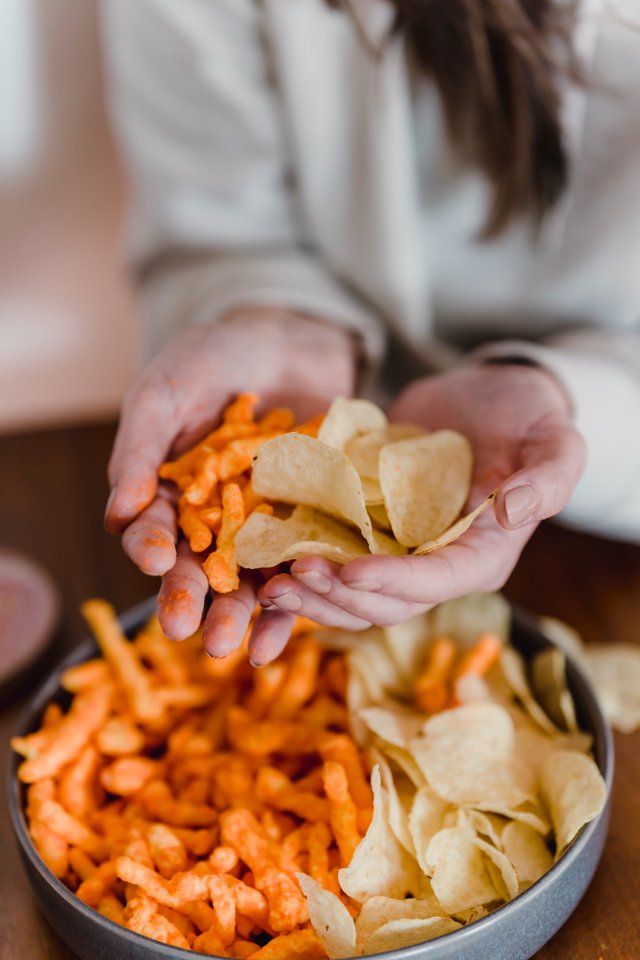
In our modern society, we are constantly bombarded with advertisements and marketing campaigns that entice us to indulge in delicious, convenient, and often unhealthy foods. Have you ever found yourself unable to resist the temptation of a bag of potato chips or a pint of ice cream, even when you know it's not the best choice for your health? It turns out there might be a scientific explanation for why these foods seem so hard to resist. According to recent studies, ice cream and potato chips may be as addictive as drugs.
The Addictive Nature of Ultra-Processed Foods
A study conducted by the University of Michigan has shed light on the addictive properties of ultra-processed foods (UPFs). Ultra-processed foods are highly processed products that typically contain high levels of sugar, carbohydrates, and unhealthy fats. Examples of UPFs include ice cream, potato chips, candy, soft drinks, and sugary cereals. These foods are often designed to be highly palatable and are engineered to trigger pleasurable sensations in our brains.
The study analyzed a total of 281 studies from 36 different countries and found that a staggering 14% of adults and 12% of children displayed signs of addiction to ultra-processed foods, as measured by the Yale Food Addiction Scale. This addiction level is comparable to the addictions seen with alcohol and tobacco. The researchers concluded that there is converging and consistent support for the validity and clinical relevance of ultra-processed food addiction.
Understanding the Science Behind Food Addiction
To understand why certain foods, such as ice cream and potato chips, can be as addictive as drugs, it is important to delve into the underlying mechanisms at play. One theory suggests that the combination of refined carbohydrates and fats found in UPFs has a supra-additive effect on brain reward systems. This means that the combination of these two macronutrients in ultra-processed foods may increase their addictive potential.
When we consume ultra-processed foods, our brains release dopamine, a neurotransmitter associated with pleasure and reward. This release of dopamine creates a pleasurable sensation, reinforcing the desire to consume these foods again. Over time, this can lead to a cycle of craving, consumption, and addiction similar to that seen with substances like nicotine, cocaine, or heroin.
The Impact of Ultra-Processed Food Addiction
The addictive nature of ultra-processed foods can have significant consequences for our health. Studies have linked the consumption of UPFs to various negative health outcomes, including obesity, type 2 diabetes, cardiovascular disease, and even certain types of cancer. Additionally, excessive consumption of these foods can lead to an increased risk of cognitive decline and psychological distress.
Interestingly, the addictive properties of ultra-processed foods can also affect our food choices. Research has shown that the consumption of sugary or fatty foods can make healthier alternatives less appealing. This can lead to a vicious cycle of overindulgence and weight gain, further exacerbating the negative health effects associated with ultra-processed food addiction.
Strategies to Overcome Ultra-Processed Food Addiction
If you find yourself struggling with an addiction to ultra-processed foods, there are strategies you can employ to help break free from its grip. Here are some tips to consider:
- Increase Awareness
The first step in overcoming any addiction is to recognize and become aware of your triggers and patterns of consumption. Take note of the times when you are most prone to reach for ultra-processed foods and try to identify the underlying reasons behind these cravings.
- Gradual Reduction
Instead of attempting to quit cold turkey, consider gradually reducing your intake of ultra-processed foods. Setting small, achievable goals can help you gradually break the cycle of addiction.
- Healthy Substitutions
Replace ultra-processed foods with healthier alternatives. Opt for whole, unprocessed foods like fruits, vegetables, nuts, and yogurt. These options provide essential nutrients while satisfying your cravings in a healthier way.
- Portion Control
If you do choose to indulge in ultra-processed foods, practice moderation and portion control. By being mindful of your serving sizes, you can reduce the likelihood of overindulging and minimize the negative impact on your health.
- Seek Support
Consider reaching out to a healthcare professional or a registered dietitian who can provide guidance and support on your journey to overcome ultra-processed food addiction. They can help you develop a personalized plan and provide strategies to stay on track.
It is important to remember that overcoming food addiction is a personal journey, and what works for one person may not work for another. Be patient with yourself, and don't be discouraged by setbacks. With time, dedication, and the right support, it is possible to break free from the grip of ultra-processed food addiction and embrace a healthier lifestyle.
Conclusion
The addictive properties of certain foods, such as ice cream and potato chips, have been a subject of scientific interest in recent years. Research suggests that these ultra-processed foods can be as addictive as drugs, leading to detrimental health effects and making them challenging to resist. By understanding the science behind food addiction and implementing strategies to overcome it, we can take steps towards a healthier relationship with food. Remember, moderation and balance are key, and seeking support can make a significant difference on your journey to breaking free from ultra-processed food addiction.
They put so much salt in crisps that I feel sick after eating just 50g of it. It would never become addictive to me.
Downvoting a post can decrease pending rewards and make it less visible. Common reasons:
Submit